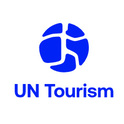Tourism for Development and Prosperity Highlighted in G20 Leaders’ Declaration
Tourism’s key role in advancing sustainable social and economic development has been highlighted in the G20 New Delhi Leaders’ Declaration.
The meeting of the G20 economies (New Delhi, India, 9-10 September) recognized the “opportunity to build a better future [through] development models that implement sustainable, inclusive and just transitions globally, while leaving no one behind”.
The high-level discussions concluded with the launch of the Leaders’ Declaration, a set of agreed-upon aims for advancing development and prosperity. Here, tourism is recognized for its ability to drive the achievement of the Sustainable Development Goals (SDGs) and the wider 2030 Agenda for Sustainable Development.
The recognition of the importance of tourism reflects UNWTO’s role as the knowledge partner of the Indian Presidency of the G20. The Leaders’ Declaration builds on the Goa Roadmap for Tourism for Tourism as a Vehicle for Achieving the SDGs. This Roadmap, which was included as an annex to the Leaders’ Declaration, is structured around the five priority areas under India's G20 Presidency, namely green tourism, digitalization, skills, supporting tourism MSMEs, and destination management.
RELATED LINKS:
- G20 New Delhi Leaders Declaration
- Goa Roadmap for Tourism for Tourism as a Vehicle for Achieving the SDGs
- G20 Tourism and SDGs Dashboard
About UN Tourism
The World Tourism Organization (UN Tourism) is the United Nations agency responsible for the promotion of responsible, sustainable and universally accessible tourism.
As the leading international organization in the field of tourism, UN Tourism promotes tourism as a driver of economic growth, inclusive development and environmental sustainability and offers leadership and support to the sector in advancing knowledge and tourism policies worldwide.
Our Priorities
Mainstreaming tourism in the global agenda: Advocating the value of tourism as a driver of socio-economic growth and development, its inclusion as a priority in national and international policies and the need to create a level playing field for the sector to develop and prosper.
Promoting sustainable tourism development: Supporting sustainable tourism policies and practices: policies which make optimal use of environmental resources, respect the socio-cultural authenticity of host communities and provide socio-economic benefits for all.
Fostering knowledge, education and capacity building: Supporting countries to assess and address their needs in education and training, as well as providing networks for knowledge creation and exchange.
Improving tourism competitiveness: Improving UN Tourism Members' competitiveness through knowledge creation and exchange, human resources development and the promotion of excellence in areas such as policy planning, statistics and market trends, sustainable tourism development, marketing and promotion, product development and risk and crisis management.
Advancing tourism's contribution to poverty reduction and development: Maximizing the contribution of tourism to poverty reduction and achieving the SDGs by making tourism work as a tool for development and promoting the inclusion of tourism in the development agenda.
Building partnerships: Engaging with the private sector, regional and local tourism organizations, academia and research institutions, civil society and the UN system to build a more sustainable, responsible and competitive tourism sector.
Our Structure
Members: An intergovernmental organization, UN Tourism has 160 Member States, 6 Associate Members, 2 Observers and over 500 Affiliate Members.
Organs: The General Assembly is the supreme organ of the Organization. The Executive Council take all measures, in consultation with the Secretary-General, for the implementation of the decisions and recommendations of the General Assembly and reports to the Assembly.
Secretariat: UN Tourism headquarters are based in Madrid, Spain. The Secretariat is led by the Secretary-General and organized into departments covering issues such as sustainability, education, tourism trends and marketing, sustainable development, statistics and the Tourism Satellite Account (TSA), destination management, ethics and risk and crisis management. The Technical Cooperation and Silk Road Department carries out development projects in over 100 countries worldwide, while the Regional Departments for Africa, the Americas, Asia and the Pacific, Europe and the Middle East serve as the link between UN Tourism and its 160 Member States. The Affiliate Members Department represents UN Tourism's 500 plus Affiliate members.
UN Tourism Communications Department
+34 91 567 8100
UN Tourism
